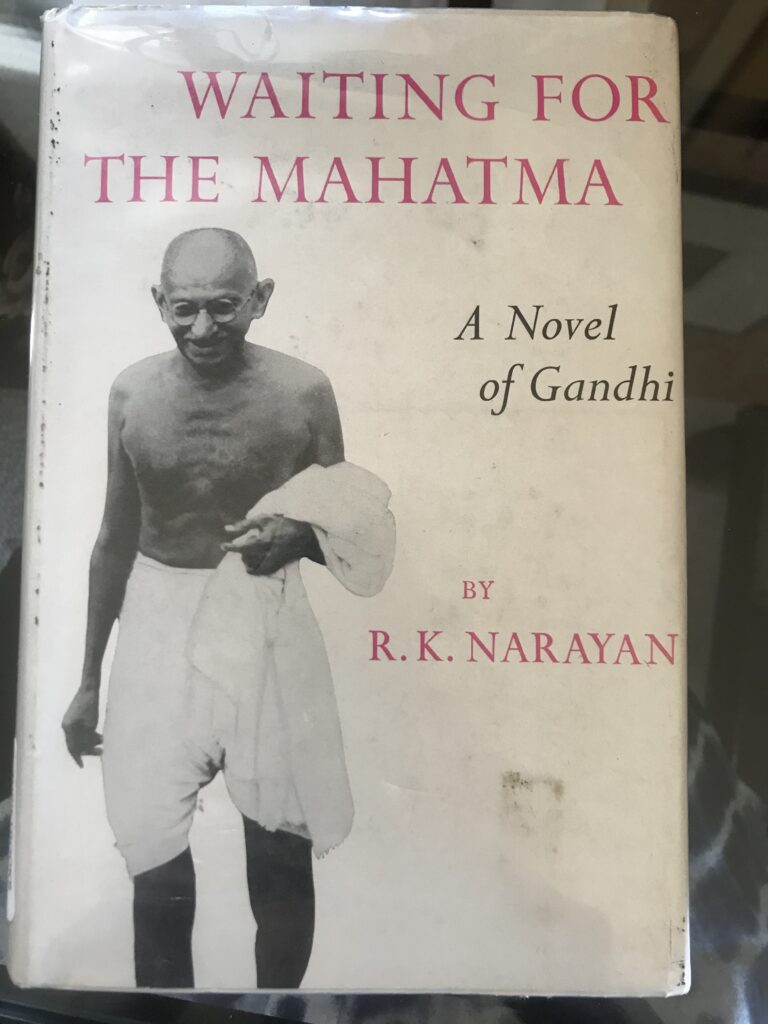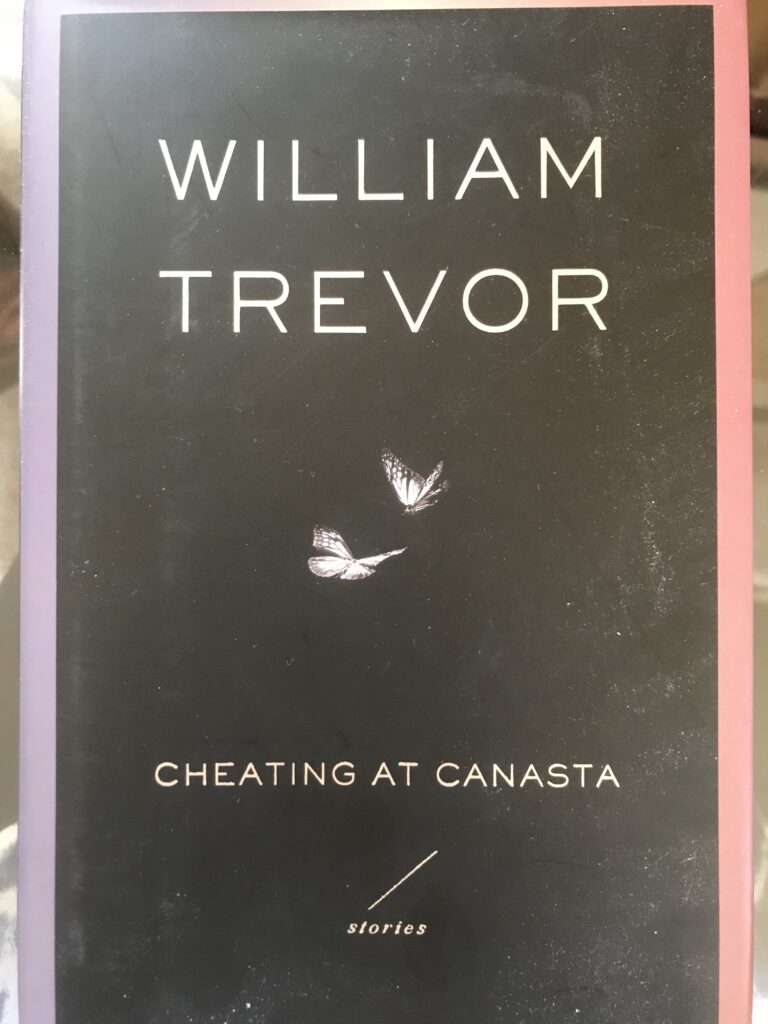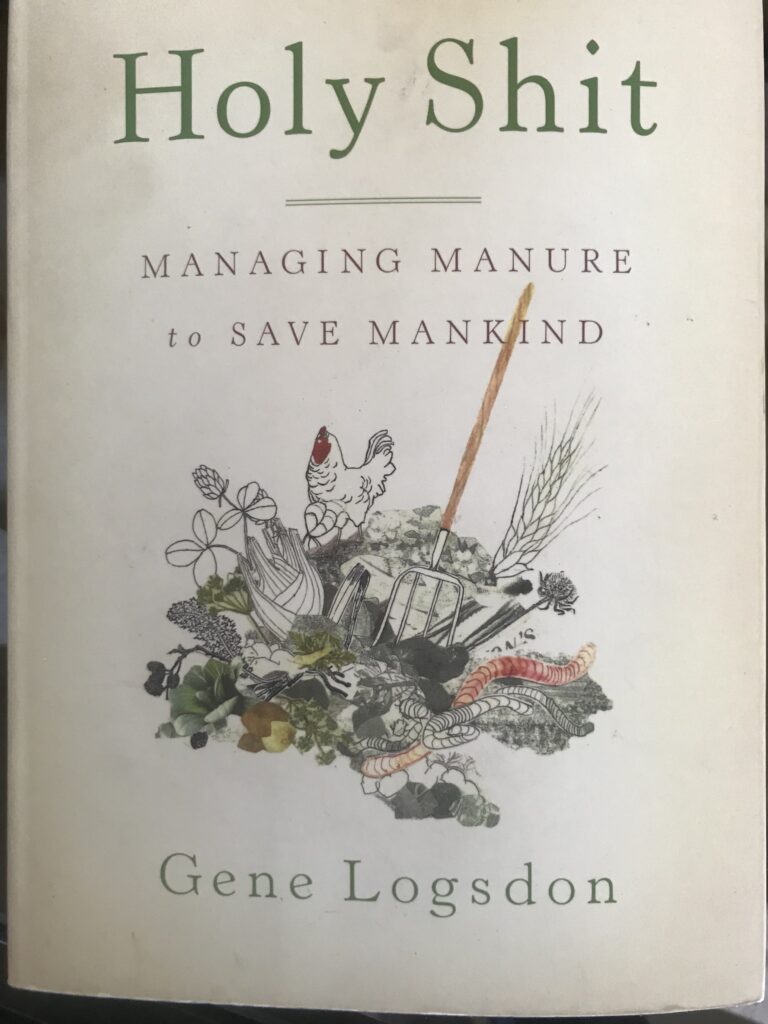The following three books reflect various aspects of transformation: the political revolution in India, the constantly moving waters of relationships and the miraculous conversion of composting. Enjoy.
Waiting for the Mahatma by R.K. Narayan
This novel was recommended to me by a friend in Belgium who had taken on some kind of reading challenge, similar to the “post a picture a day” things, like a chain letter and other annoying interferences. My friend, Jean-Loup is one of the nine children in a family I lived with during an American Field Service year aboard in 1972. We haven’t seen each other since then. Facebook reconnected us (and other members of the family). I had written for several years to the family after my departure and they knew about some trips to India I had made in the later seventies and early eighties. Voyages made with the intent to become self-realized, a commodity more difficult to attain than advertised, I might add.

The tale of Waiting for Mahatma takes place in the fictional South Indian town of Malgudi, a place Narayan invented and developed in various novels much like William Faulkner’s Yoknapatawpha County. I had never read Narayan before. The dust jacket on my copy read, “So far none of his books has been a best seller but he has won increasing acceptance with each new book.” A blunt assessment if there every was one from his publisher.
Sriram is a young man raised by his grandmother who received monthly pension checks from Sriram’s deceased father. Grandmother carefully saved them for her grandson’s future. Sriram is a spoiled, conceited person who meets and falls madly in love with one of Mahatma Gandi’s devotees during a visit to Malgudi. Her name is Bharati (a word Gandiji used to describe Mother India).
We follow path of both Bharati and Sriram’s love, if it can be called that, while the Mahatma urges a non-violent path to Independence from British rule. Bharati is imprisoned. Sriram deviates and become a terrorist of sorts, clumsy, without real conviction, and ever the narcissist. Woven throughout the novel is Sriram’s obsession with Bharati. She insists their marriage must be blessed and approved by the Mahatma, which it finally is.
There is a simplicity and irony about Narayan’s writing that exposes both the complexity of India’s caste system, the preference of male opinions despite how idiotic they may be and also of the naiveté of women. In this case, is Narayan proposing that India (Bharati) is walking in to a disastrous marriage? Published in 1955, Waiting for the Mahatma is written after the blood bath of August 1947 resulting in the current nationalist view of Hindus over Muslims, a philosophy the Mahatma clearly rejected, and ultimately caused him his life.
I am keen on reading more of R.K. Narayan for his economical prose that poses innocently yet darts into social observation like a poison pen.

Cheating at Canasta by William Trevor
Short story writing is an art. William Trevor is a master and this quiet tome tweaks our heartstrings for its connection with the deep soul of humanity.
Whether he is writing about a husband playing cards whilst visiting his wife in a nursing home and letting her win (cheating at canasta…) or in “A Perfect Relationship” describing a break-up and reconciliation with the simple, “I thought it would be easy,” comment about living as a couple, Trevor styles dignified prose incorporating bits of landscape, local language and the poignancy of simply being human. As we navigate a new relationship with life during the pandemic isolation and by proxy the people with whom we live, reading William Trevor is like having our hands held. The going won’t be any easier, but understanding we are not alone and the terrain of vulnerability, longing for greater understanding when there is none to be known is a trait we all share.

Holy Shit: Managing Manure to Save Mankind by Gene Logsdon
For a person who is obsessed with the miracle of composting, this book is the Holy Grail. Lifelong farmer and observer of nature and all things agricultural, in other words, an astute observer of life, Mr. Logsdon fills an entire book with witty, down to earth, knowledgable information on excrement.
He has an opinion on every type ranging from bat guano to human waste and everything in between. He opposes every movement (except the bowel movement) and thus I hesitate to call him an environmentalist. He cultivates care taking of the earth and its creatures. Composting is at once at the bottom (pardon the pun) of the cycle and the top. Who among us who witness our kitchen scraps being devoured by red wigglers and cast into moisture rich soil can argue that composting is the ultimate sustainable process. With chapter headings like “Pigs Can Potty-Train Themselves,” No More Poop Coops,” The Nitty-Gritty of the Shitty,” and “Meditations on a Meadow Muffin,” you’ll laugh at this former seminarian who imparts wisdom as freely as he shovels shit. The author passed away in 2016 but you can still read his wonderful blog here.
